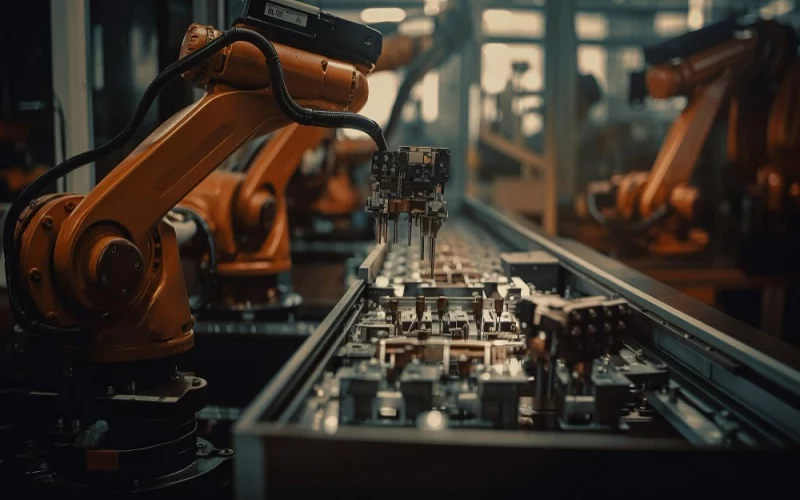The Indian hospitality sector has been witnessing a steady growth from the past few years and was contributing around 7.5% to the country’s GDP before the pandemic. According to WTTC, India ranked 10th among 185 countries in terms of travel & tourism’s total contribution to GDP in 2019. The rich culture and heritage of the country is widely popular amongst the tourists across the globe which makes India a well-recognised spiritual tourism hub. A striking growth in position moving from 65th in 2013 to 34th position in 2019 in the World Economic Forum’s travel and tourism competitiveness index, only strengthens the point above.
Hospitality sector is no more confined to hotels, lodges, guest houses and restaurants providing food and accommodation only. Although, the hospitality industry covers tourism and travel as well, this blog focusses majorly on food and beverage sector and lodging sector. Travel and tourism being a large segment in itself warrants a separate blog altogether. Even the lodging and food & beverages sector has widened its coverage over the years and the following are a part of it now:
Impact of Covid-19 and global impact
Covid-19 has led to a sharp decline in the revenue of the industry. With global lockdowns in place, the industry has by and large remained stagnant in terms of revenue and has seen mounting fixed expenses leading to mammoth operational losses. This was especially true in case of premium hotels who majorly survive on foreign tourists. Though, it seemed at that with air-bubble policy in place, things will pick up swiftly. However, with the new virus strain in United Kingdom and the delayed vaccinations in place has left industry crippled.
Nonetheless, necessity is the mother of all inventions. The sluggish economy has forced the sector to come up with innovative measures to boost revenues. Other than engaging in cost control, the hotels have started taking pre-bookings till as long as 2022 for a tariff rate which is more than 50% cheaper than their usual rates. Though vacations is not on the top of the charts, staycation is the trending all over. People are taking time off and staying in premium and luxury properties in the cities where they live. The hotels ensure hygiene and sanitisation to provide comfort to their guests.
Critical Industry specific issues related to GST
- GST rates on lodging: Accommodation services provided by hotels in terms of GST has been divided as per tariff rates. The breakup and current GST rates as applicable is given below:
Tariff Per Night GST Rates Less Than Rs.1000 No Tax (0%) Between Rs.1000- Rs.2499 12% Between Rs. 2500-Rs.7499 18% More Than Rs.7500 28% In the erstwhile regime, there were multiple levies on an accommodation bill such as Luxury tax, Service tax, VAT in case complimentary breakfast is provided. However, now only GST (CGST+SGST) is applicable on the accommodation bill. Luxury tax was a state levy and used to differ from one state to another. However, on a broad basis, the taxation impact has reduced post implementations of GST. Further, the complexity of indirect taxation on the hotel industry has simplified as GST has subsumed all other state and central levies.
- GST rates on food and beverage: Further, restaurants inside the hotels are considered independently. The GST is levied @ 5% on food bills. However, restaurants in hotels with room tariff of Rs. 7,500 or more, food services including delivery of food provided by a restaurant/food joint located within premises of a club, guest house, etc., outdoor catering services are liable to discharge GST @ 18%. Moreover, independent restaurants are also liable to charge GST @ 5%.
- Availability of ITC: On the ITC front, the restaurants charging 18% GST on their output side, are eligible for ITC whereas those charging 5% GST are ineligible for the same. In terms of GST on inputs such as vegetables, fruits, meat, etc., nil GST i.e. GST exemption has been provided in case of most fresh as well as frozen products. It is only in case of food stuff packed in containers with brand name that other GST rates are applicable. However, the ITC with respect to various other goods and services such as rent, advertising, furniture etc. for restaurants charging output GST @ 5% becomes a cost in the chain.For hotels, ITC in respect of most of the expenses, unless otherwise specified are available such as repairs, maintenance, furniture, decorative, etc.
- Advances received: One important aspect in case of hospitality industry is advances received. Since, hospitality is a service industry, the time of supply is the date when advances are received (which is a common occurrence in hospitality industry). Thus, in case of advances received for blocking of rooms, GST is to be paid at the time of receipt of advance. This advance should be adjusted at the time of raising invoices. There could be a host of issues revolving around this point such as GST charged at a different rate at the time of receipt of advance and different rate applicable at the time of rendition of service, cancellation of bookings and refund to be granted etc. A strict track of all advances received and tax paid should be maintained. This helps in closing out on advances and correct charging of taxes.
- Composite and mixed supplies: The industry also faces challenges in terms of taxability of composite and mixed supplies. In the sector, it is quite common to provide complimentary goods and services, bundled goods and services. Therefore, to determine the taxability of such services/ goods, a case to case fact study needs to be done. For eg. Mini bar goods provided complimentary along with room charges, cake and flowers given free of cost for guests celebrating occasions at the hotel etc.
- Forfeiture of advances: Another important aspect is the no show charges, forfeiture of advances, cancellation charges etc. charged by the hotel for guests who book and pay in advance but do not avail services. This is a grey area with a lot of debate going on the same. As a conservative view, typically the industry charges GST on such amount considering it as a Schedule II activity – Activities or transactions to be treated as a supply of goods or services: “agreeing to the obligation to refrain from an act, or to tolerate an act or a situation, or to do an act”. Another school of thought is that no GST should be charged on such amount as there is no underlying supply involved.
- Role of E-commerce:The modalities of hospitality industry have undergone massive changes. Just like most of the other sectors, E-commerce has carved out its role in the industry. Restaurants have partnered with delivery platforms; whereas hotels have partnered with booking platforms. The revenues of the industry via such e-commerce platforms is significant. As a consideration for their services, e-commerce operators charge commission from them at agreed rates. Such commission is subject to GST. Further, the E-commerce operators are also liable to collect TCS on supplies through their portal by other suppliers and the actual supplier can avail the credit of TCS so collected.
- Other issues: The sector reels from several other issues as well such as the international hotels who have parent entities outside India need to keep in mind the reverse charge liability on royalty charges, management fees, operational fees, training fees etc., non-inclusion of alcohol under GST, non-availability of ITC on construction of immovable property.
- Technology related issues: A hotel has access to massive personal data of guests such as their ID cards, addresses, phone numbers, e-mail addresses, preferences etc. Thus, data security becomes priority. Another key issue prevalent for the industry is the role of internet in sales and promotion; thus, making search engine optimisation crucial.
Although GST has largely impacted the sector positively, however, the uncertainty prevailing around due to the pandemic and emerging new strains of virus have created a havoc for the sector. Government incentives would be of key importance to bring the sector back on its foot. Further, Digital technology has found its way into the industry in a big manner. Technology powered by AI, block chain, BoT, etc. has transformed how the industry functions. In very part of the sector, technology is playing a big role whether it be guest engagement and retention, customer relationship management, metasearch marketing etc.
Source










